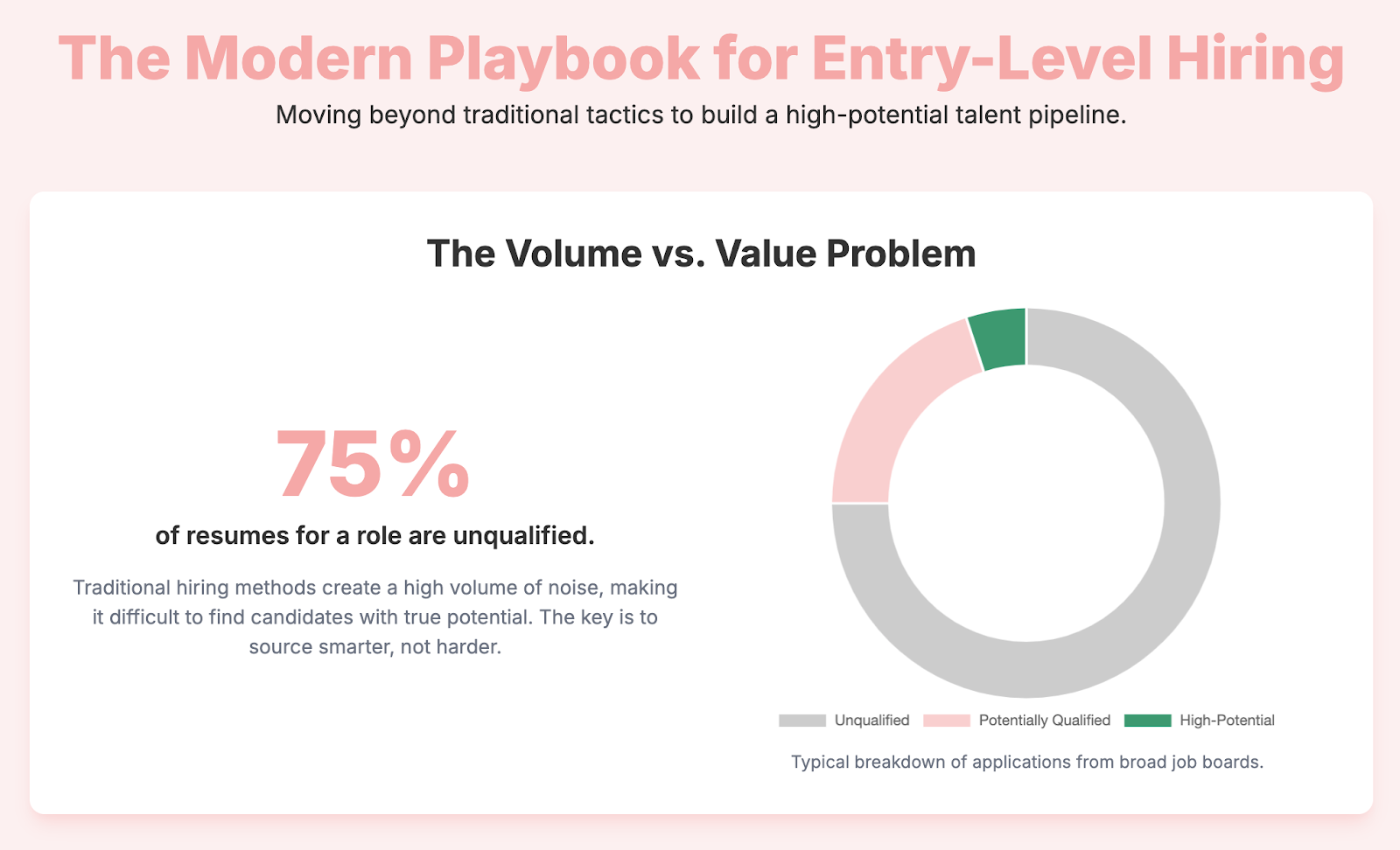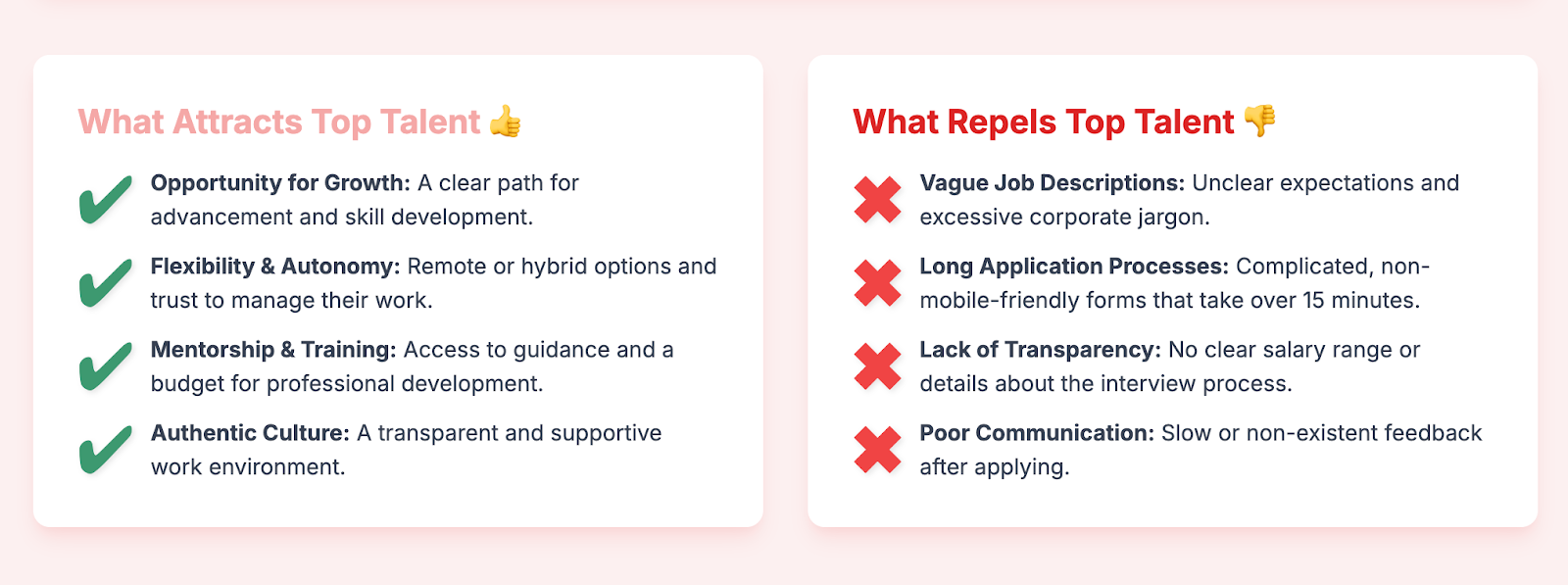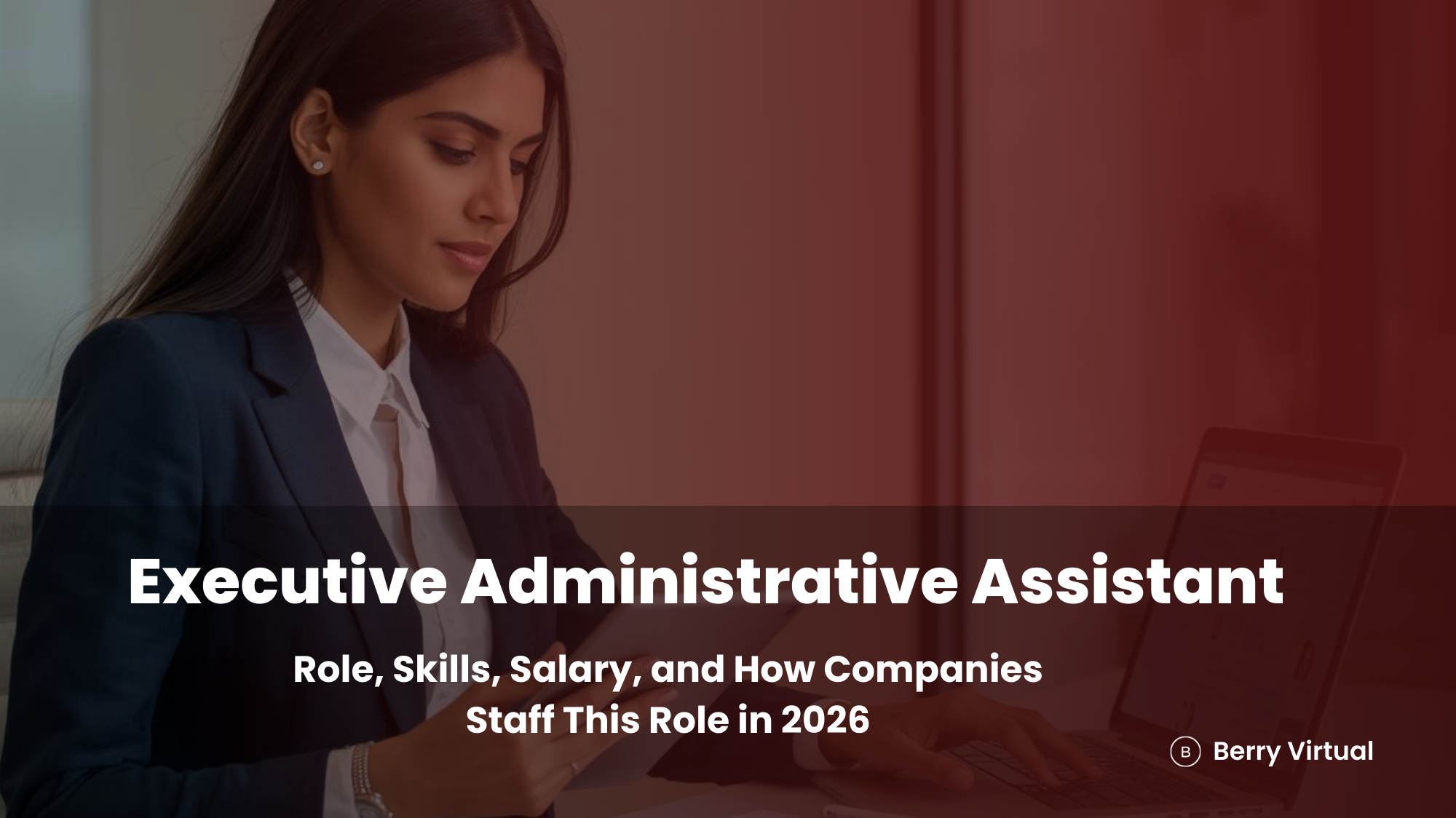The search for entry-level talent is often viewed as a trade-off: high volume, low experience. But in today's competitive job market, the real challenge is identifying high-potential candidates who possess the right aptitude, attitude, and digital literacy to grow quickly within your organization.
Finding these candidates requires moving beyond outdated recruitment tactics and actively engaging where new professionals are already spending their time.
Here is a comprehensive, actionable guide on how to build a robust pipeline for your entry-level roles, turning your hiring challenge into a genuine source of long-term talent.

1. Optimize Your Job Descriptions for Potential, Not Just History
When writing a job description for an entry-level role, the language must shift from demanding experience to highlighting opportunity and skills.
A. Focus on Transferable Skills
Instead of listing five years of experience (which is impossible for a new graduate), focus on the skills they do have from academic projects, volunteer work, or part-time jobs:
- Problem-Solving: Highlight scenarios where they must adapt or resolve issues.
- Digital Fluency: Mention specific software or tech stack proficiency (e.g., proficiency with a CRM, advanced Excel skills, social media scheduling tools).
- Communication: Look for clarity in writing and speaking.
B. Simplify and Humanize the Language
Entry-level candidates, often Gen Z, value authenticity and clarity. Avoid excessive corporate jargon. Use words describing the actual team culture and the role's growth path. Make the application process itself mobile-friendly and straightforward. You will lose many candidates if your application takes longer than 15 minutes on a phone.
2. Go Beyond Traditional Job Boards: Where New Talent Lives
While LinkedIn and Indeed are necessary, the battle for top entry-level talent is won in specialized and community-focused spaces.
A. Forge Strong Educational Partnerships
Building a direct pipeline with local and specialized institutions is the most effective way to ensure a steady stream of pre-vetted candidates.
- Career Services Offices: Partner with university career offices. They often host focused job fairs, manage internship programs, and circulate internal email lists to specific departments (e.g., marketing majors and data science boot camps).
- Capstone Projects & Sponsorships: Sponsor a university capstone project related to your industry. This allows you to evaluate students' work ethic and output over a semester without a formal hiring commitment.
- Technical and Trade Schools: For roles requiring specific hard skills (e.g., web development, bookkeeping, specialized admin), technical schools often provide graduates who are job-ready and highly motivated.
B. Leverage Social Media Platforms Strategically
Different platforms require different sourcing tactics:
- LinkedIn: Use LinkedIn Recruiter, but target “recently graduated" filters and join specific professional groups related to their field of study.
- Instagram & TikTok: These platforms are essential for Employer Branding. You won't post a job opening here but will post authentic, short-form content showcasing your company culture, current entry-level employees, and day-in-the-life videos. This attracts candidates to want to work for you.
C. Internal Referrals: Your Most Trusted Source
Current employees who started in entry-level roles are your best recruiters. They know the job's reality and refer candidates whom they believe can succeed in that environment.
- Incentivize: Offer a tiered referral bonus: a smaller bonus when the referral is hired and a larger bonus if the referral stays for six or twelve months. This encourages quality, high-retention referrals.

3. The Power of Pipelines: Internships and Apprenticeships
For many companies, the ideal "entry-level candidate" is someone they have already trained. Creating a formal, structured pipeline is the most proactive way to mitigate hiring risk.
- Convert Interns to Employees: Treat your internship program as a 3-6 month audition. If structured correctly, the conversion rate should be high, and the new hire should already understand the culture, technology, and basic processes.
- Apprenticeship Models: Adopt apprenticeship frameworks for technical or highly specialized roles. Apprenticeships combine on-the-job training with technical instruction, giving you a loyal employee who grows into the role precisely as your company needs them to.

4. Prioritize Candidate Experience and Fair Screening
The way you treat applicants reflects your company's values. Entry-level candidates are often applying for dozens of jobs; make your process the one that stands out for its respect and clarity.
- Transparent Interviewing: Clearly outline the interview process upfront. Be transparent about salary ranges or starting pay.
- Skill-Based Assessments: Instead of relying solely on interviews, implement short, relevant skill-based assessments that measure aptitude over credentials. For a social media role, ask them to draft a week’s worth of content. For an administrative role, give them a data cleanup task.
- Rapid Communication: A fast “yes” or “no” shows respect. Acknowledge every application and let candidates know the next step within a reasonable timeframe.

The Berry Virtual Advantage: Outsourcing the Entry-Level Challenge
Finding high-potential entry-level talent is resource-intensive. It requires dedicated time for sourcing, vetting, and training, tasks that many businesses struggle to do.
This is where Berry Virtual steps in.

We provide dedicated, expertly trained virtual staff who excel in entry-level and junior professional tasks (data entry, social media execution, and administrative support). By partnering with us, you effectively outsource the complex and time-consuming process of:
- Sourcing & Vetting: We tap into global talent pools, verifying education and testing aptitude.
- Core Training: Our VAs arrive with foundational training in key business software and professional protocols.
- Retention: We handle compensation, benefits, and support, ensuring the VA remains highly motivated and reliable.
Instead of spending weeks searching for an entry-level candidate, you can onboard a Berry Virtual professional ready to reclaim those 20 hours a week. This allows you to focus your internal resources on recruiting high-level strategic talent.
Ready to bypass the entry-level hiring headache? Explore our Virtual Staffing solutions today.

Frequently Asked Questions (FAQ)
What is the most common mistake when hiring entry-level staff?
The most common mistake is focusing too heavily on hard skills and little on attitude and aptitude. Since entry-level candidates have limited professional experience, their growth potential, willingness to learn, and fit within the team culture are far more predictive of long-term success than specific software knowledge they can easily understand. Focus interviews on behavioral questions that reveal problem-solving approaches.
How can we compete on salary if our budget is tight for entry-level roles?
If you can't offer the highest salary, you must compete on benefits and culture. Highlight non-monetary perks that matter to this demographic:
- Flexibility: Offer remote or hybrid work options.
- Professional Development: Provide clear training budgets, mentorship, and opportunities to earn certifications.
- Clear Growth Path: Show them the trajectory from "Entry-Level Associate" to "Specialist" in 18-24 months. Candidates are often willing to take a lower starting wage if the future is clearly defined and promising.
How do we screen for "digital literacy" in the interview process?
Digital literacy goes beyond being active on social media. You can screen for it by:
- Live Tasks: Asking them to share their screen and complete a short, everyday task, like organizing data in a spreadsheet or setting up a shared folder structure.
- Tool Familiarity: Asking how they've used collaborative tools like Slack, Notion, or Asana in past group projects or jobs.
- Quick Learning: Presenting them a completely new, simple software tool during the interview and observing their learning process to navigate it.
Is it better to hire a remote or local entry-level employee?
While local hires offer easier in-person mentorship, remote hiring drastically expands your talent pool. By hiring remotely, you gain access to candidates across different regions who may have lower salary expectations or specialized skills not available locally. This is particularly effective for roles primarily involving digital work, such as data entry, social media, and administrative support.

.avif)


